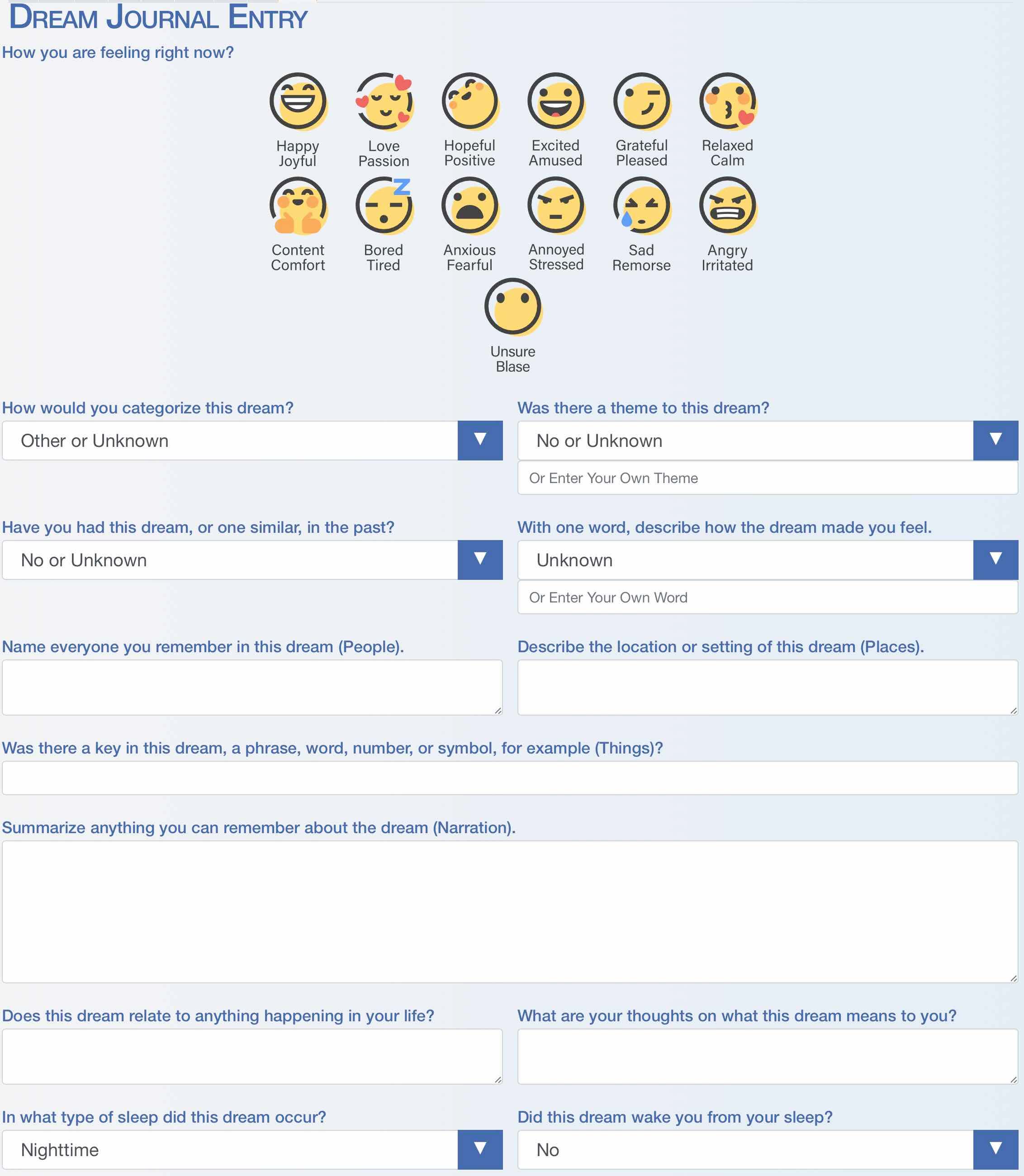 Did you know that most people dream anywhere from three to six times per night? It's true! Research shows that people who woke from REM sleep reported having dreams up to 90% of the time.
Did you know that most people dream anywhere from three to six times per night? It's true! Research shows that people who woke from REM sleep reported having dreams up to 90% of the time.
You might be wondering why, if you dream so frequently, you don't remember your dreams. Or perhaps you're no stranger to dreaming frequently, but you're never quite sure what the symbolism in your dreams mean.
Enter dream journaling. Dream journaling is a unique practice that gives you the power to understand yourself and your subconscious better. Through dream journaling, you can tap into your innermost thoughts, empowering you to improve your daily life.
Today, you'll learn what dream journaling is, how to do it, and why you need to start dream journaling today. Let's dive in!
Dream journaling is the practice of keeping a diary for your dreams. The process is simple: wake up, jot down your dreams, then start your morning routine. This could be in a notebook or through an interactive dream journaling service. Even though this might seem like a simple ritual, it has the potential to dramatically change your life.
Even though scientists don't fully understand dreams, there's one thing for certain: they represent your subconscious mind. This is the behind the scenes database that stores all of the data you take in but isn't in the forefront of the mind.
In fact, this is one of the reasons your dreams may be so easily forgotten. Since most people are widely unaware of their own subconscious, dreams are one of the only ways they can get in touch with them.
This means that dream journaling gives you the tools you need to get to know yourself better. In other words, by spending a few minutes recording your dream each morning, you can learn much about yourself.
Whether you want to understand your deepest desires or uncover the meaning behind confusing dreams, dream journaling is a great solution. Learning how to dream journal can have some surprising impacts on your life.
Ultimately, dream journaling is a great form of self-care and allows you to learn more about yourself. Understanding oneself leads to higher self-esteem and lower stress and anxiety levels. That means if you're struggling, dream journaling can transform your life in many ways.
There are a few reasons why dream journaling is always a good idea:
Keeping a dream journal is a simple practice that will greatly impact your life. Even though it only takes a few minutes per day, you might be impressed with the difference it makes.
Learning how to dream journal is easier than you might think. Feeling overwhelmed? There's no need to worry - we've done the heavy lifting for you. Here are five quick and easy steps you can take to start dream journaling today:
 Did you know that you don't need to spend money on a notebook or diary to dream journal? In fact, limiting yourself to pen and paper could be holding you back. After all, life is busy. Wouldn't you rather pick a platform that can easily go wherever you are?
Did you know that you don't need to spend money on a notebook or diary to dream journal? In fact, limiting yourself to pen and paper could be holding you back. After all, life is busy. Wouldn't you rather pick a platform that can easily go wherever you are?
The best way to dream journal is online. With Take 2 Minutes, all you must do is pick up your phone, text a simple phrase, and you can instantly receive a link to your daily dream journal entry. Our dream journal entry form was created with you in mind and is the easiest and fastest way to get started with dream journaling.
The best part about our platform is that we walk you through the process. You won't need to worry about missing important details since our prompts ensure no detail goes undocumented. Once you complete your daily entry, we'll even store the information for you, which you can use to identify trends and reflect on past dreams.
It's no secret that smartphones have become an important part of life today. Why not use them to uncover the meanings behind your dreams?
The key to dream journaling is accurately documenting what happens in your dreams. This means you'll need to wake each morning and record your dreams before moving on in your morning routine. Since your brain's pathways start compressing dream memories shortly after you wake up, the sooner you do this, the better.
Remember: your dream journal is your own. There is no "right" or "wrong" way to journal. There is only one important rule: write down as much as you can remember. Some people write in full sentences with perfect grammar and spelling. You can also choose to write "stream of consciousness" style, which could reveal more.
The number one most important thing to remember about dream journaling is this: you must stay consistent. Dream journaling is a journey to understanding your subconscious mind in a new way. In order to get the most out of your experience, data recording is paramount. You'll need to commit to writing in your journal every day to get the best results.
In addition to using the Take 2 Minutes virtual dream journal, you can also draw pictures of your dreams. Don't worry - you don't need to have exceptional artistic abilities to do this. A simple sketch is usually more than adequate to accompany your dream journal.
There aren't any special rules about what you should or shouldn't draw when it comes to your dreams. Here are a few ideas to help you get started:
To take this step to the next level, try creating a title for each dream. This adds a special artistic touch and can also help you get to the root of the message differently and creatively.
It can be tempting to put lots of pressure on yourself to remember more about your dreams. There's no doubt that, at times, the process can get frustrating, especially if you go days without recording an entry. However, it's important to remember to enjoy the process.
When you allow yourself to get frustrated with dream journaling, it can actually make you less likely to be successful. Keeping an open mind and being patient with yourself is undoubtedly the best way to go. When your mind and body are in a relaxed state, you'll find it easier to remember things about your dreams versus when you're feeling out of control and wound up.
If you're struggling with stress and it's hurting your dream journaling process, there are steps you can take to improve your mental state. Engaging in calming exercises like meditation or yoga are some examples of ways to battle stress and anxiety.
Ultimately, remember that dream journaling is meant to be an enlightening and fun process. If dream journaling is causing you anxiety, there's nothing wrong with taking a step back for a few days. Remember: you can always come back to it later.
Perhaps one of the biggest benefits of dream journaling is gaining the ability to locate patterns in your dreams. Thanks to an archive of entries, you can review past dreams and see repetitions that you likely would not have noticed before.
A good rule of thumb is to go back and review your dreams every two to three weeks. Grab a pen and paper or open your notes app and jot down any consistencies you see across dreams. Then, you can create a journal entry that explores the patterns you see in your dreams.
Dedicate some time to trying to identify what major themes or occurrences might mean - that's the power of dream journaling!
At Take 2 Minutes, we're committed to making dream journaling a breeze. Simply sign up for an account, text a simple phrase, and we'll instantly send you a link to your own dream journal entry.
Our user-friendly form has fields where you can record your mood, dream categories, themes, and patterns. Then, we created freeform sections where you can name people in your dreams, describe locations, summarize, and more.
Our intuitive website has specially tailored tools that you can use to harness the power of dream journaling. At Take 2 Minutes, it is our mission to help you connect with yourself on a deeper level. Are you ready to change your life? Get started today.